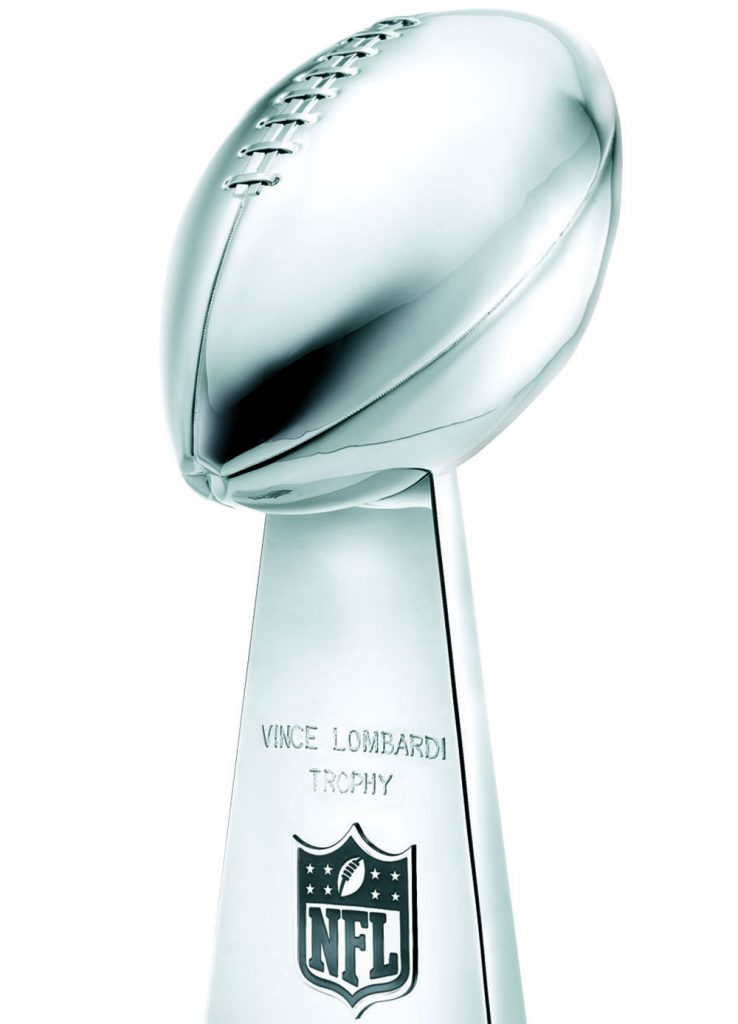America’s new High Holy Day is fast approaching. The National Football League’s playoffs will culminate with the Super Bowl on Feb. 1 in Phoenix.
To add grandeur and importance to this already super-hyped event, the NFL affixes Roman numerals to each of these contests. So as we near Super Bowl XLIX, it might be a good time to look back to see how we got here.
The short answer is…television.
It’s hard to imagine now, but just a few decades ago, professional football was not the goliath it has grown to be, but trailed in the race for America’s athletic affections behind baseball, heavyweight boxing, horse racing and even college football. In a documentary, NFL Hall of Famer Sam Huff (who played in the 1950s and ‘60s), recounted how in the very year he appeared on the cover of Time magazine as a superstar linebacker for the New York Giants, the team’s practices had to end by a certain time every afternoon so that he and other players could go to their “day jobs” in a nearby factory so they could support their families.
It was a far cry from the multi-million dollar signing bonuses of today and it was television that changed it all. Many historians claim it was one game in particular that catapulted the NFL into its current status as a modern-day juggernaut.
The 1958 NFL championship game between the Baltimore Colts and New York Giants was then the only championship game in NFL history to be decided in overtime. And it was broadcast nationwide, except in the greater New York area because the NFL, worried about filling Yankee Stadium, where the game was played, blacked out local television for the home team.
More than 45 million people watched, a remarkable number considering the population of 1958 America and the fact that the population-dense New York area was not included. It was the perfect game, with many television friendly stars like Johnny Unitas and Frank Gifford and a back and forth excitement which concluded with a touchdown drive in sudden death. It was like a made-for-TV movie.
Like a lot of things in our culture, things that get big are considered better. Not so sure if this applies to the NFL. I do know, even as a card-carrying football fan, that the television excess of the Super Bowl can cause one to ponder.
The cost for a 30-second ad in the first Super Bowl set the advertiser back $42,000. In 2015, that same allotment of time will cost an advertiser $4.5 million.
And just as the revenue stream into the coffers of NFL owners and their broadcasting partners have swelled, so in Newtonian precision has there been an equal and opposite descent in the taste and appropriateness of the television commercials that make it all possible. You could almost make a game at a Super Bowl party of counting how many of the Seven Deadly Sins are represented in any one car, soft drink or beer commercial during the big game’s broadcast.
If there are going to be children present at Super Bowl watching parties, I suggest there be a designated clicker with his hands firmly on the remote control, ready to click away when the next inappropriate million dollar television commercial is beamed directly into the living room.
And speaking of the deadly sins, the NFL and its pact with television have caused a seismic ground swell in the euphemistically called “gaming industry.” According to ESPN.com, Vegas sportsbooks took in 119 million dollars in Super Bowl bets last year.
Being the good Catholic that I am, I often remind my dear Protestant friends that a nice glass of wine and a friendly wager are not incompatible with biblical standards. But the over the top nature of everything Super Bowl makes me feel like breaking out into a chorus of “Onward Christian Soldiers.”
And speaking of things Christian, Sunday is supposed to be a different day of the week whether you’re Protestant or Catholic. It’s supposed to belong to someone else and it’s supposed to be a time for families to kind of hang low and not do too much.
In my youth, if a friend called and wanted you to come over to play after Mass, the answer was always the same… no… it’s Sunday. Still, when I was growing up in the last heady days of the 1960s, we watched football games, but the games didn’t interfere with a Mass schedule.
In 1963, the NFL took things a step further when the league decided not to cancel its slate of Sunday games that took place between the assassination of John F. Kennedy on the previous Friday and his burial the following Monday.
The NFL survived that public relations disaster and now, thanks in no small part to television, it owns Sunday in a way that no one ever thought possible. Despite scandalous behavior of players past, present and future, and wardrobe malfunctions to come, it seems the NFL will be with us for quite some time as “America’s Game” on the Lord’s Day and that alone is cause for an instant replay review to see if that’s the correct call.

